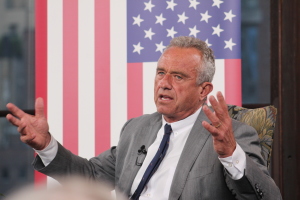College Employee Fired for Opposing Comparison of Gay Rights With Black Civil Rights Movement?
Religious Freedom Advocacy Lawyers File Brief With US Supreme Court Supporting UT Staff Member
Religious freedom advocacy lawyers representing a University of Toledo employee apparently fired for a letter she wrote objecting to a local newspaper's editorial that compared the efforts of homosexual activists to the black civil rights movement of the 1950s and '60s, have filed a brief with the U.S. Supreme Court.
Alliance Defending Freedom and the Pacific Justice Institute announced Monday that they have filed the brief that asks the court to review the case of Crystal Dixon, who works in the school's Human Resources department, according to ADF.
In response to a column in the Toledo Free Press by Editor in Chief Michael S. Miller five years ago, headlined "Gay rights and wrongs," Dixon wrote a letter, "Gay rights and wrongs: another perspective," according to a recent column in the same newspaper. However, the argument is made in the recent opinion piece that Dixon mis-interpreted the column that "discussed discrepancies in domestic partner benefits following the University of Toledo's merger with the Medical College of Ohio" that in her view equated "race, sexuality, and physical challenges."
The Toledo Free Press re-published parts of Dixon's letter in the recent article.
"I take great umbrage at the notion that those choosing the homosexual lifestyle are 'civil rights victims'," she wrote. "Here's why. I cannot wake up tomorrow and not be a Black woman. I am genetically and biologically a Black woman and very pleased to be so as my Creator intended. Daily, thousands of homosexuals make a life decision to leave the gay lifestyle. …
"God created humans with an inalienable right to choose. There are consequences for our choices, including those who violate God's divine order."
Dixon was soon fired after the publication of her letter. The college's president said, "[Dixon's] comments do not accord with the values of the University of Toledo. It is necessary, therefore, for me to repudiate much of her writing and to make this attempt to clarify our values system."
In ADF's statement released on Monday, Senior Legal Counsel David Hacker said, "Universities should be the marketplace of ideas, not environments where officials dictate conformity to their own views even outside of the campus. Seventy years of legal precedent make it clear that government officials have no authority to rob public employees of their First Amendment freedom of speech outside of work on a non-work-related matter."
Senior Counsel Kevin Theriot added, "University officials cannot mandate that all employees, in their personal capacities, have the same opinion as they do. This much is extremely clear in First Amendment law."
The brief filed with the Supreme Court in Dixon v. University of Toledo explains that the university "fired Dixon for writing the op-ed (letter) because they deemed it not in 'accord' with the 'values' of the University of Toledo. They ignored that she wrote as a citizen and it was the university who publicly exposed her as an employee. In [the university's] view, any public disagreement with the university's values, even though those values were neither the subject of the original editorial nor Dixon's op-ed, warranted Dixon's dismissal from employment."
When Dixon sued over her termination, the U.S. Court of Appeals for the 6th Circuit rejected her First Amendment claim because she was a public employee, ADF stated.
"In doing so, the Sixth Circuit ignored seventy years of precedent establishing that if 'there is any fixed star in our constitutional constellation, it is that no official, high or petty, can prescribe what shall be orthodox in politics, nationalism, religion, or other matters of opinion or force citizens to confess by word or act their faith therein,'" states the brief, which was filed together with Kevin Snider, chief counsel of PJI and who is one of nearly 2,300 allied attorneys with ADF.




























